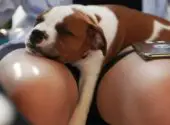When you first brought your furry friend home, they were the independent type. They didn’t need to be by your side every second and were perfectly content sleeping in their own bed. But now, it seems like your dog is suddenly clingy and won’t let you out of their sight. You start to wonder: why is my dog clingy all of a sudden?
Trying to figure out why your usually independent dog is suddenly acting so clingy can be frustrating. So we compiled six possible reasons for your dog’s clinginess.
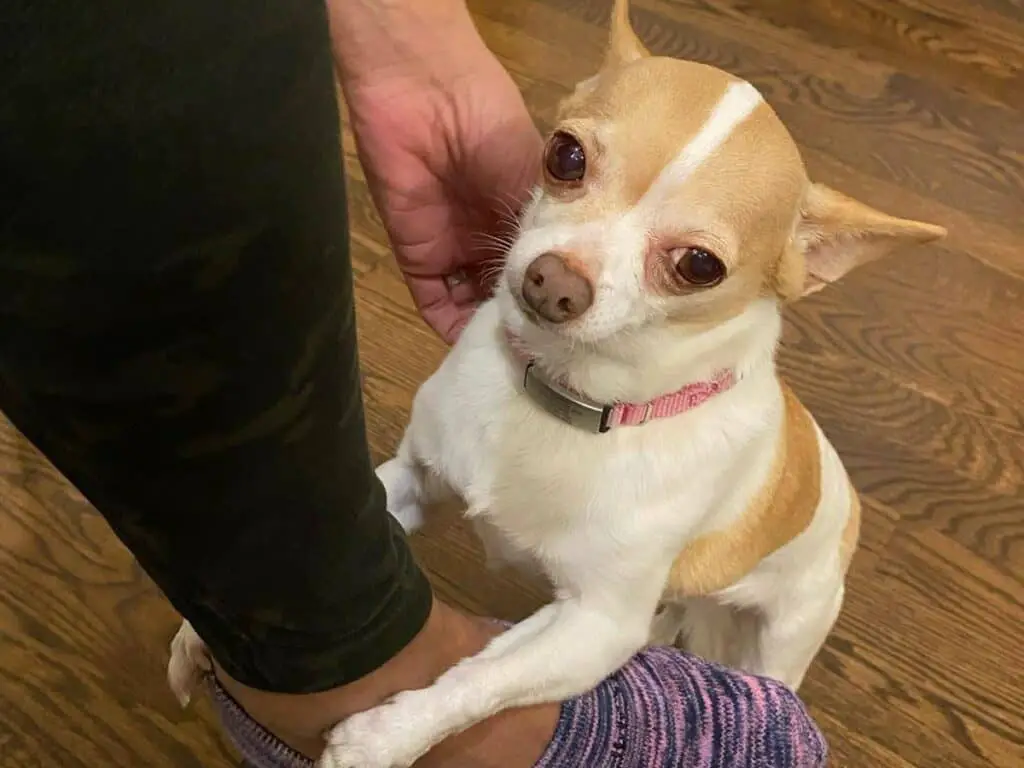
1. Boredom
When dogs get bored, they’ll do whatever they can to pass the time. They might chew on wood trim and dig up the garden. It’s all the more exciting when you’re not there to stop them.
Unfortunately, some of the things dogs enjoy can lead to big messes when left home alone, like unrolling toilet paper, getting into the trash, and shredding pillows. These destructive behaviors can quickly turn your house into a disaster.
Moreover, boredom in dogs can manifest in many ways, even when you’re at home, including incessant attention-seeking behavior and restlessness.
What Can You Do?
Have you asked yourself: Why is my dog clingy, and what can I do to solve it? If boredom is the underlying cause for clinginess, there are some easy things you can do to help. Try adding more excitement into your dog’s life and see if that makes a difference.
Give Your Dog Enough Physical Exercise: Dogs need physical exercise as people do. A dog without enough exercise is more likely to become bored and get into mischief.
Taking your dog for a walk is probably the most popular way to get your dog exercised and for a good reason. A walk is a great way to get him moving and get him out of the house. If you can take your dog on a long walk, that’s great, but even a shorter walk will be enough exercise.
If you have a yard, let your dog run around. Not only is running around a great way to get your dog active, but it’s also a great way to improve his breathing. Running exercises the dog’s lungs and helps to keep his body healthy.
Keep Your Dog Mentally Stimulated:
Do you know how important it is to give your dog’s brain a workout?
You’ve read that correctly: stimulating your dog’s brain is just as important as exercising her body.
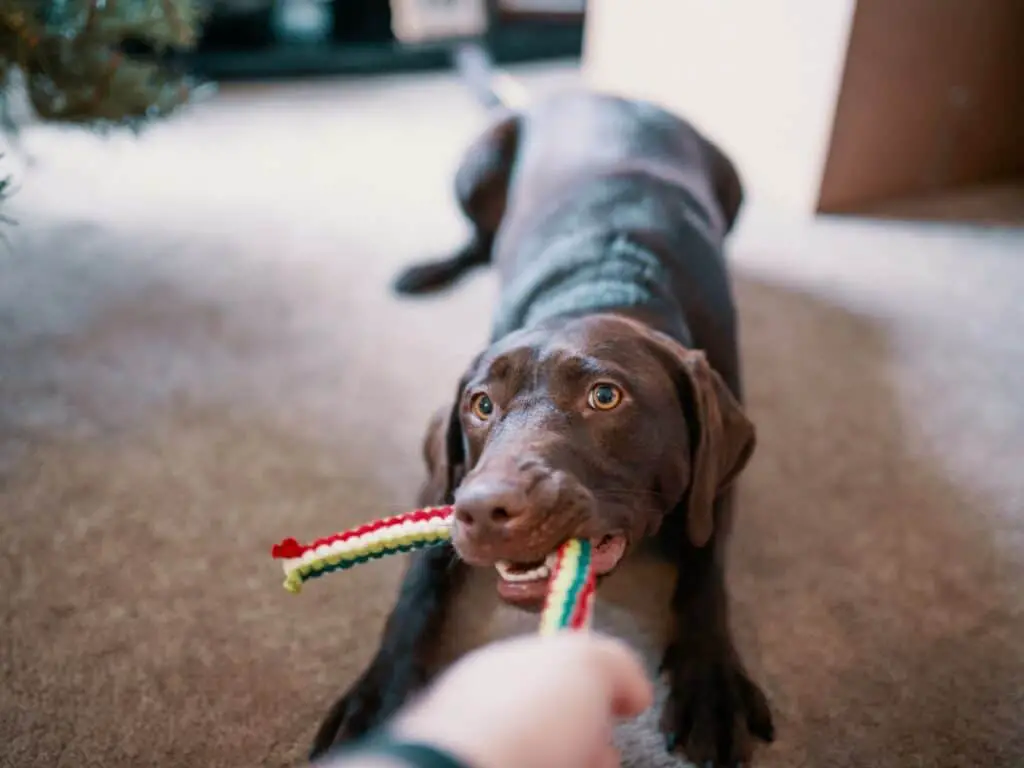
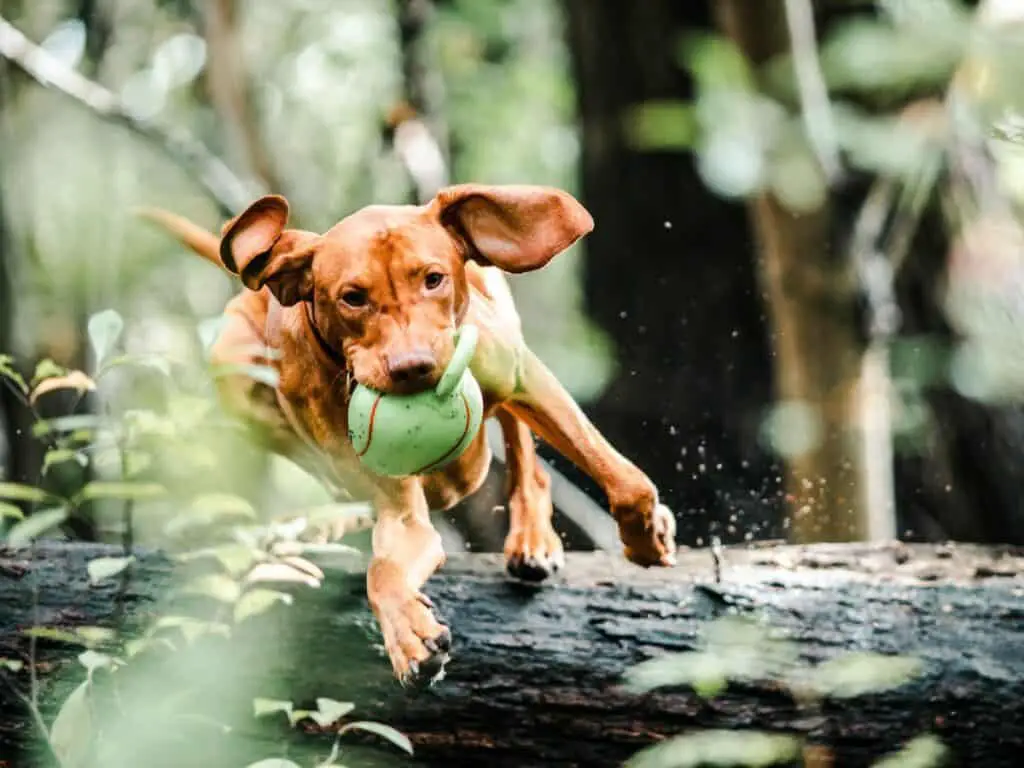
One great way to keep your dog entertained is by playing games. Games are a great way to help build your relationship with your dog and can also be a great boredom buster. Some of the best games to play with your dog include hide and seek, where your pooch has to find you; tug-of-war, where your dog tries to pull the other end of the rope with all his might; and fetch, where your dog picks up the ball around the house or yard.
Socialize Your Dog: Dogs can get really bored easily, and if they don’t get enough stimulation, they can become destructive or clingy. That’s why ensuring your dog gets enough socialization is important.
Introducing your dog to new environments is an excellent way to socialize them. This will allow them to encounter different people and smells, both of which will help keep them stimulated and happy. Additionally, taking them on walks provide dogs with socialization opportunities with other dogs.
2. Canine Cognitive Dysfunction Syndrome (CCDS)
It’s hard to think about your best friend getting old and gradually losing their cognitive abilities. But Dementia or Canine Cognitive Dysfunction Syndrome (CCDS) is a heartbreaking reality that we all have to face eventually.
Dogs suffer from dementia just like humans do. The symptoms are similar, and the cause is the same — a sudden loss of memory. Dogs become confused and anxious and cling to you for relief and protection.
Your dog may become more attached to you than usual, refusing to leave your side or showing a strong preference for being near you. This behavior may go hand-in-hand with other changes in your dog’s behavior, such as becoming more vocal or becoming more difficult to wake up from a nap.
What Can You Do?
Dogs have no known cure for dementia, but the vet can help minimize its effects. They can perform tests to rule out Cushing’s Disease that may share the same symptoms, and they may be able to prescribe Anipryl, also known as Selegiline or selegiline hydrochloride, to help your dog manage the condition.
Your vet may also prescribe sleep aids and anti-anxiety medications to help improve your dog’s quality of life.
Dementia is a gradual process that can vary from dog to dog. Some dogs may only experience mild memory problems, while others may experience more severe problems. However, regardless of how severe the dementia is, you can still help your dog.
With dementia, it’s important to work with your veterinarian to develop an appropriate care plan, as the condition can vary from dog to dog. The following are some measures you can take to assist your dog.
More Doggy Puzzles: Puzzle toys can provide mental stimulation for your older dog, keeping their brain active and engaged. This, in turn, help delay the onset of CCDS.
But don’t forget: It is important to know your dog’s limitations when using this treatment. Seek other treatment options if your dog gets anxious about the stimulus of the doggy puzzles.
Keep Training and Play Simple and Short: Too much stimulation can harm your dog. As a dog owner, you must balance play and training.
Dog play sessions should be interactive and of appropriate duration. You’ll want to keep your dog engaged without overwhelming and stressing them. Knowing your dog’s preferences is essential to achieve this goal.
Don’t worry; teaching an old dog new tricks won’t cause anxiety — it’s actually a great way to keep their brain active. The same goes for nose work — another activity that’s perfect for stimulating their minds.
Don’t get frustrated if your dog with dementia is not as enthusiastic about doing tricks as he used to be. A professional such as your vet or a veterinary behaviorist can help provide guidance on how to best approach these activities.
Keep a Consistent Environment:
Consistency in the environment can help dogs with dementia re-orient themselves and avoid confusion.
Maintain consistency in positioning water bowls, pet beds, toys, furniture, and other items around the home. Making significant changes to the arrangement of these things can be disruptive and unsettling.
Additionally, maintain a clean and organized environment for your dog. Toys should be put away after use, and clothes should be placed in the laundry hamper to avoid creating clutter.
And remember: Guests in your home can cause your dog to become confused and anxious due to the introduction of new stimuli into their environment. Please be mindful of your dog’s needs when you have guests, and make sure to put everything back in its place once they have left.
Follow a Routine: Dementia in dogs can present itself through disorientation, amongst other symptoms. Adhering to a schedule may help re-orient dogs and potentially prevent further deterioration of their condition, such as heightened anxiety levels.
Developing a routine that works for you and your dog can be difficult if your life is not predictable or your dog’s sleep schedule is disrupted. However, establishing a regular routine consisting of consistent wake-up, meal, and bedtimes will help reduce your pup’s confusion.
3. Separation Anxiety
Why is my dog clingy all of a sudden? It’s a question that often plagues dog owners. One possible reason for this unusual behavior is separation anxiety.
Separation anxiety in a dog can take many forms, but one of the most common symptoms is clinginess.
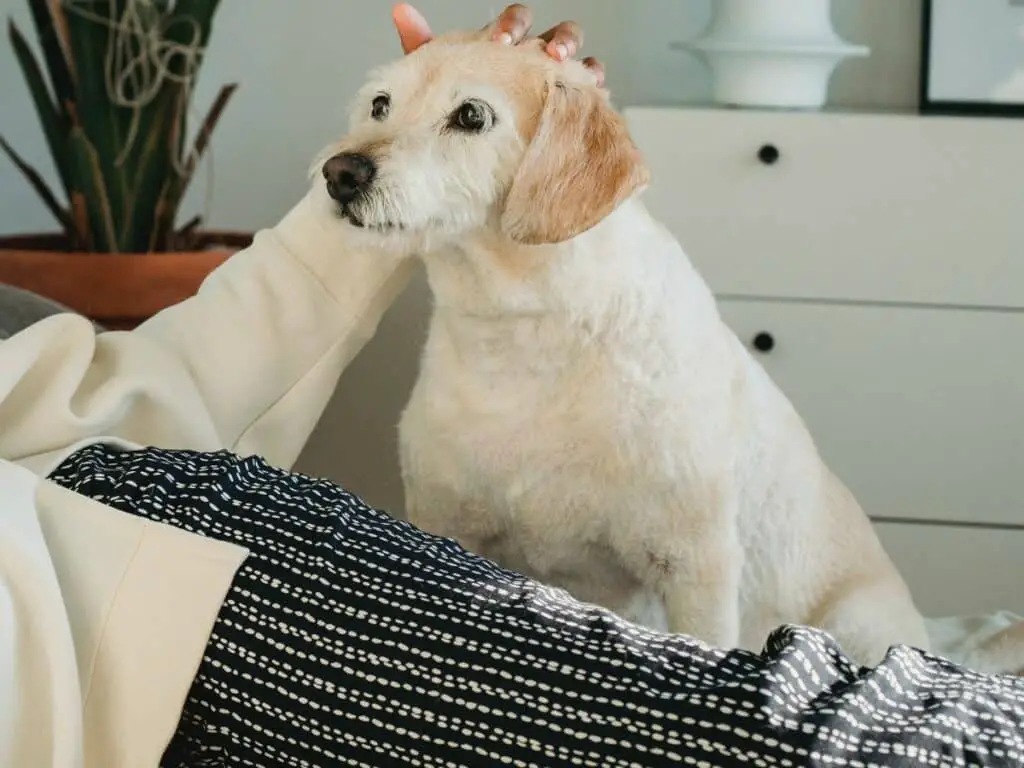

If your dog is suddenly clingy and follows you everywhere, it’s probably because they have separation anxiety. Fortunately, it’s easy to diagnose if this is the case.
Most anxious dogs get super excited when they realize they get to stick close to their human all the time but panic when they lose sight of their owners. Another potential sign that a dog may be experiencing separation anxiety is if they often vocalize through howling or whining upon the owner’s return after being out for an extended period.
What Can You Do?
Whenever you leave your dog home alone, make sure to give them a little something extra special, like a toy that dispenses dog treats. Only give your dog this treat when you’re away, and take it away when you get back. That way, they’ll associate you leaving with getting a delicious snack and coming home with being deprived of one.
Unfortunately, pups with severe anxiety typically cannot be distracted by the most appealing treats. You will need to take a slow approach to get them used to your absences.
Try to keep your departure routine as calm and routine as possible. Make sure you always do the same things — put on your shoes, pick up your keys, and pick up your bag — so your dog knows what to expect. And, of course, never leave without saying goodbye first.
4. Pregnancy
There’s a good chance that your dog is pregnant, but you may not know it. Pregnant dogs may look and act the same as their non-pregnant counterparts, but subtle signs can tip you off to the fact that your dog is expecting. For example, you might notice behavioral changes, including increased affection. So if you’re thinking, why is my dog clingy suddenly? You now know the answer.
Pregnant dogs cling to their owners for comfort and protection during pregnancy. Some pregnant dogs may also be more vocal.
What Can You Do?
You might be tempted to keep your pregnant dog confined to the house. But that’s not the best way to care for her. A properly exercised pregnant dog is less likely to be clingy and more likely to be happy and content. Be sure to stick to mild exercises like walking around the block.
What about nutrition? A properly-fed pregnant dog will provide her pups with the necessary nutrients to grow and develop properly. Ensure that her diet contains the right mix of vitamins, minerals and supplements. This will help guarantee the mother’s and her puppies’ health.
Read also: Can Dogs Eat Brussels Sprouts? How Safe & Good Are They Really!
Finally, while pregnant dogs may experience a few changes in their behavior, such as being more clingy and wanting to be close to their owners, they are still just dogs. Handling these changes by spending time with your dog help to ensure that she has the emotional support she needs.
5. Illness
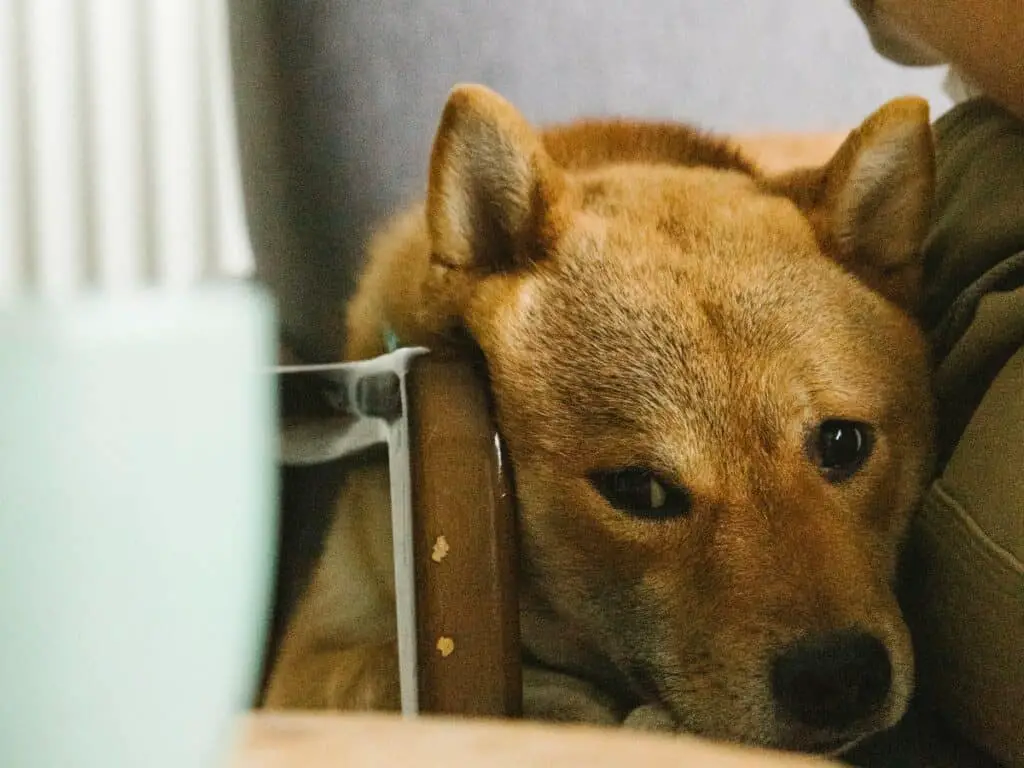
There are a few things that can happen when your dog is sick. Some dogs may have a harder time dealing with the physical and emotional changes that come with their illness, which may lead to them withdrawing from their humans. Likewise, other fogs become clingier than usual.
Whatever the cause, it is important to be aware of your dog’s behavior and to try to understand what is causing it. This will help you better care for them and ensure they are as comfortable as possible during their illness.
What Can You Do?
A sick dog isn’t going to march up to you and tell you they’re not feeling well. As a dog owner, you must keep an eye out for early symptoms. Here are some signs to watch for:
Your dog may become clingy and seek out your company.
Your dog may have diarrhea or become lethargic.
Your dog may have a fever or exhibit other signs of being sick.
If you notice any of these signs in your dog, take them to the veterinarian as soon as possible for a diagnosis and treatment.
Read also: How to Cure Parvo Without a Vet: Treat at Home Options
6. Unfamiliar Company
If you bring new people around, your dog might get stressed and cling to you. They might feel uncertain about the new person, but eventually, they’ll realize that this person isn’t a threat.
What Can You Do?
If you can get them to become more familiar with new people, they’ll be less likely to be cautious around them. Dogs typically become more comfortable around people after they’ve been introduced a few times and have had a chance to form a connection.
You can do a few things to ease your dog’s anxiety and make them feel more at ease around a stranger.
If you’re going away for the weekend, meet your dog’s sitter a few times beforehand. This can help your dog not see them as strangers and alleviate their anxiety. It can also help your dog feel comfortable and relaxed.
Related Questions
Why is my dog clingy and shaking?
Your poor pet may be clingy and shaking because he’s in pain, scared, anxious, or just cold. If you notice that your dog is over-clingy and shaking a lot, it might be worth talking to your veterinarian about the issue.
Why is my dog clingy and restless all of a sudden at night?
Dogs can be particularly restless in a stressful or loud environment, such as during a thunderstorm or when separated from their owner.
Dogs with neurological conditions such as Alzheimer’s Disease or senility can also experience restless behavior. If you’re worried about your dog’s clinginess and restlessness, don’t hesitate to consult a veterinarian.
References
Katina, S., Farbakova, J., Madari, A., Novak, M., & Zilka, N. (2015). Risk factors for canine cognitive dysfunction syndrome in Slovakia. Acta Veterinaria Scandinavica, 58(1), 1-7.
Salvin, H. E., McGreevy, P. D., Sachdev, P. S., & Valenzuela, M. J. (2010). Under diagnosis of canine cognitive dysfunction: a cross-sectional survey of older companion dogs. The veterinary journal, 184(3), 277-281.
Sherman, B. L. (2008). Separation anxiety in dogs. Compendium, 30(1), 27-42.


